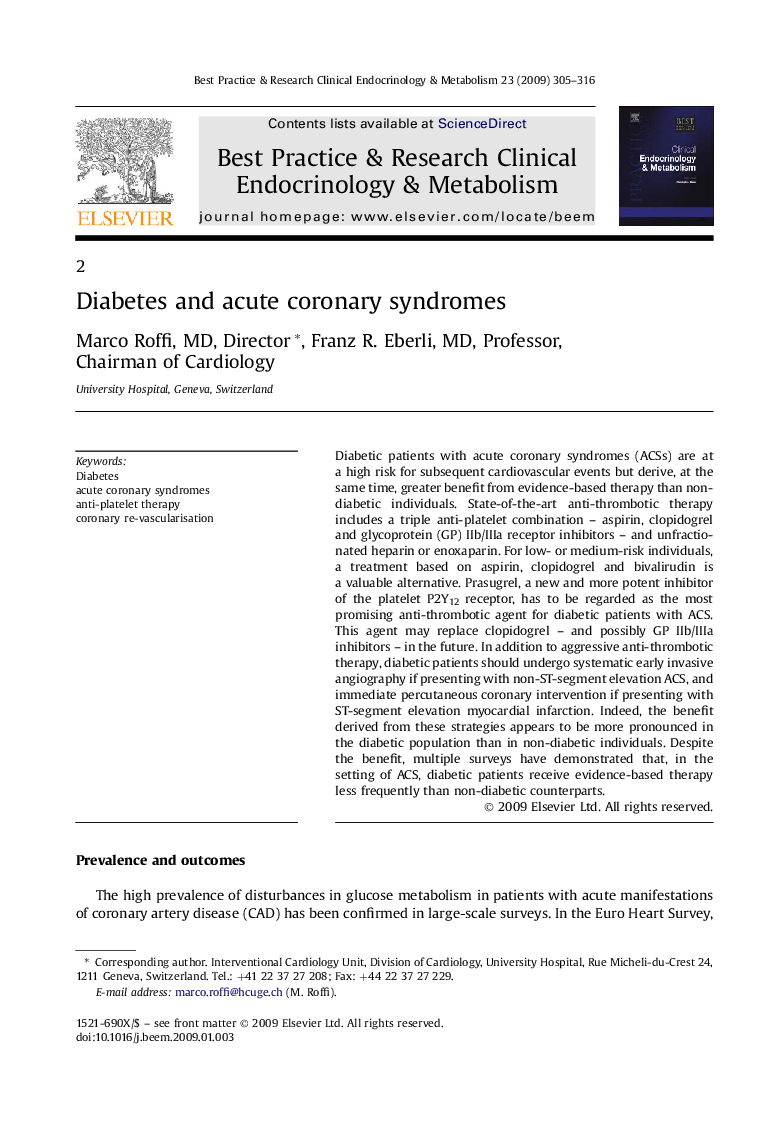| Article ID | Journal | Published Year | Pages | File Type |
|---|---|---|---|---|
| 2792045 | Best Practice & Research Clinical Endocrinology & Metabolism | 2009 | 12 Pages |
Diabetic patients with acute coronary syndromes (ACSs) are at a high risk for subsequent cardiovascular events but derive, at the same time, greater benefit from evidence-based therapy than non-diabetic individuals. State-of-the-art anti-thrombotic therapy includes a triple anti-platelet combination – aspirin, clopidogrel and glycoprotein (GP) IIb/IIIa receptor inhibitors – and unfractionated heparin or enoxaparin. For low- or medium-risk individuals, a treatment based on aspirin, clopidogrel and bivalirudin is a valuable alternative. Prasugrel, a new and more potent inhibitor of the platelet P2Y12 receptor, has to be regarded as the most promising anti-thrombotic agent for diabetic patients with ACS. This agent may replace clopidogrel – and possibly GP IIb/IIIa inhibitors – in the future. In addition to aggressive anti-thrombotic therapy, diabetic patients should undergo systematic early invasive angiography if presenting with non-ST-segment elevation ACS, and immediate percutaneous coronary intervention if presenting with ST-segment elevation myocardial infarction. Indeed, the benefit derived from these strategies appears to be more pronounced in the diabetic population than in non-diabetic individuals. Despite the benefit, multiple surveys have demonstrated that, in the setting of ACS, diabetic patients receive evidence-based therapy less frequently than non-diabetic counterparts.
